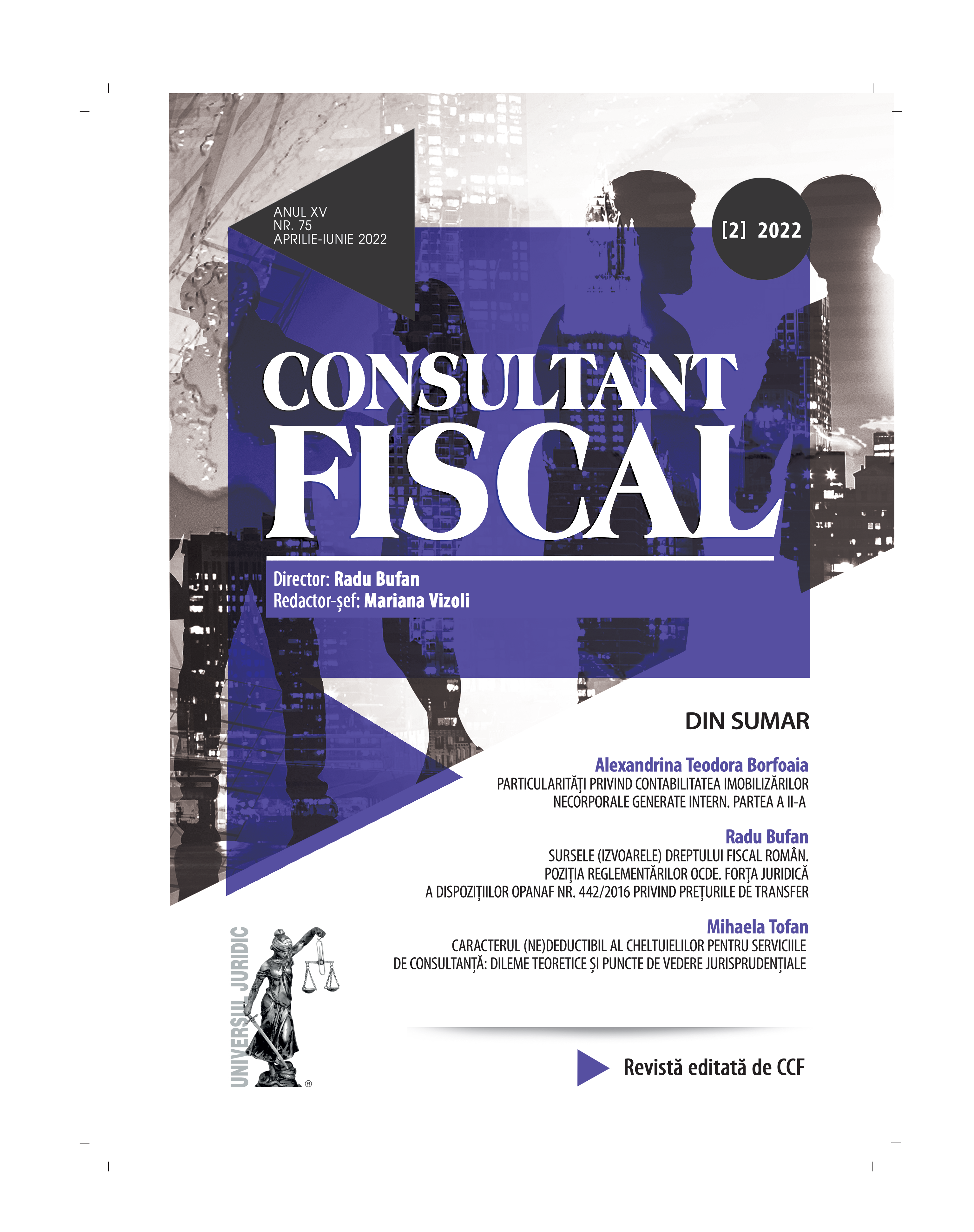Convențiile multilaterale prezente și viitoare din domeniul fiscal – un răspuns la problemele din ce în ce mai complexe cu care ne confruntăm?
Present and future multilateral tax treaties - an answer to the increasingly complex problems we face?
Author(s): Ioana LixandruSubject(s): Law, Constitution, Jurisprudence, Civil Law, Public Law, Fiscal Politics / Budgeting, ICT Information and Communications Technologies
Published by: Universul Juridic
Keywords: multilateral convention; multilateral instrument; BEPS; double taxation agreement; pillar I; pillar II; digital economy;
Summary/Abstract: In addition to the recent changes to the Tax Code, two other events with a tax impact took place this summer: the entry into force for Romania on 1 June of the Multilateral Convention on the Implementation of Tax Treaty Measures to Prevent Base Erosion and Profit Shifting and the publication of the OECD Secretary-General’s July 2022 report to G20 finance ministers and central bank governors outlining the latest developments on international taxation. As for the multilateral convention mentioned above, after a long wait (the signing ceremony took place in Paris on 7 June 2017), the convention was ratified earlier this year by Law No 5 of 2022. The legislation was received with disappointment, as Romania chose to apply fewer articles of the Convention than it had originally intended, and did not make the anticipated significant changes to its bilateral conventions. However, the Multilateral Convention has aroused interest and curiosity not because of the changes made, but because of its application and the new technical terms introduced, as it is the first multilateral instrument to amend existing tax treaties. Although the Convention entered into force in June, Romania has not yet sent notification of the completion of its internal procedures for the provisions of the Convention to take effect. The subject remains of interest, given that Romania is expected to change its options in the future regarding the provisions chosen for implementation, and internationally new states are ratifying this convention. In the meantime, the OECD is preparing a multilateral convention for the implementation of Pillar I mentioned in the Declaration on the Two-Pillar Solution to address the fiscal challenges of the digital economy, with a public consultation on this pillar running until 19 August 2022. In its Press Release of 11 July 2022, the OECD expressed its intention to finalise the new multilateral agreement for Pillar I by mid-2023, to enter into force in 2024 (the original deadline for finalising the multilateral agreement was in the first half of this year). It is also intended that one of the Pillar II rules will also be implemented through a multilateral instrument. The next meeting to discuss progress on the two-pillar solution will be in October 2022.
Journal: Revista Consultant Fiscal
- Issue Year: 2022
- Issue No: 02
- Page Range: 20-22
- Page Count: 3
- Language: Romanian
- Content File-PDF

